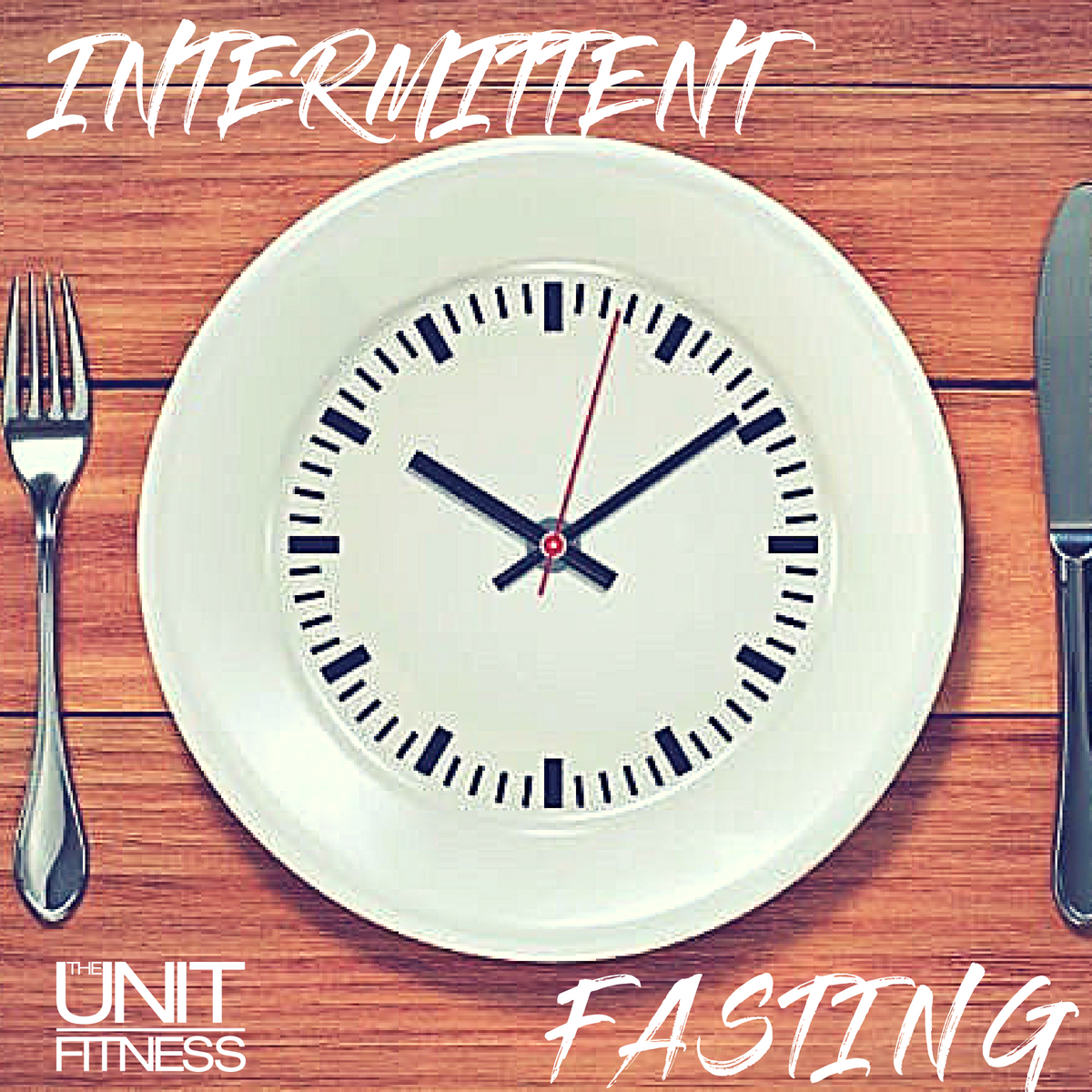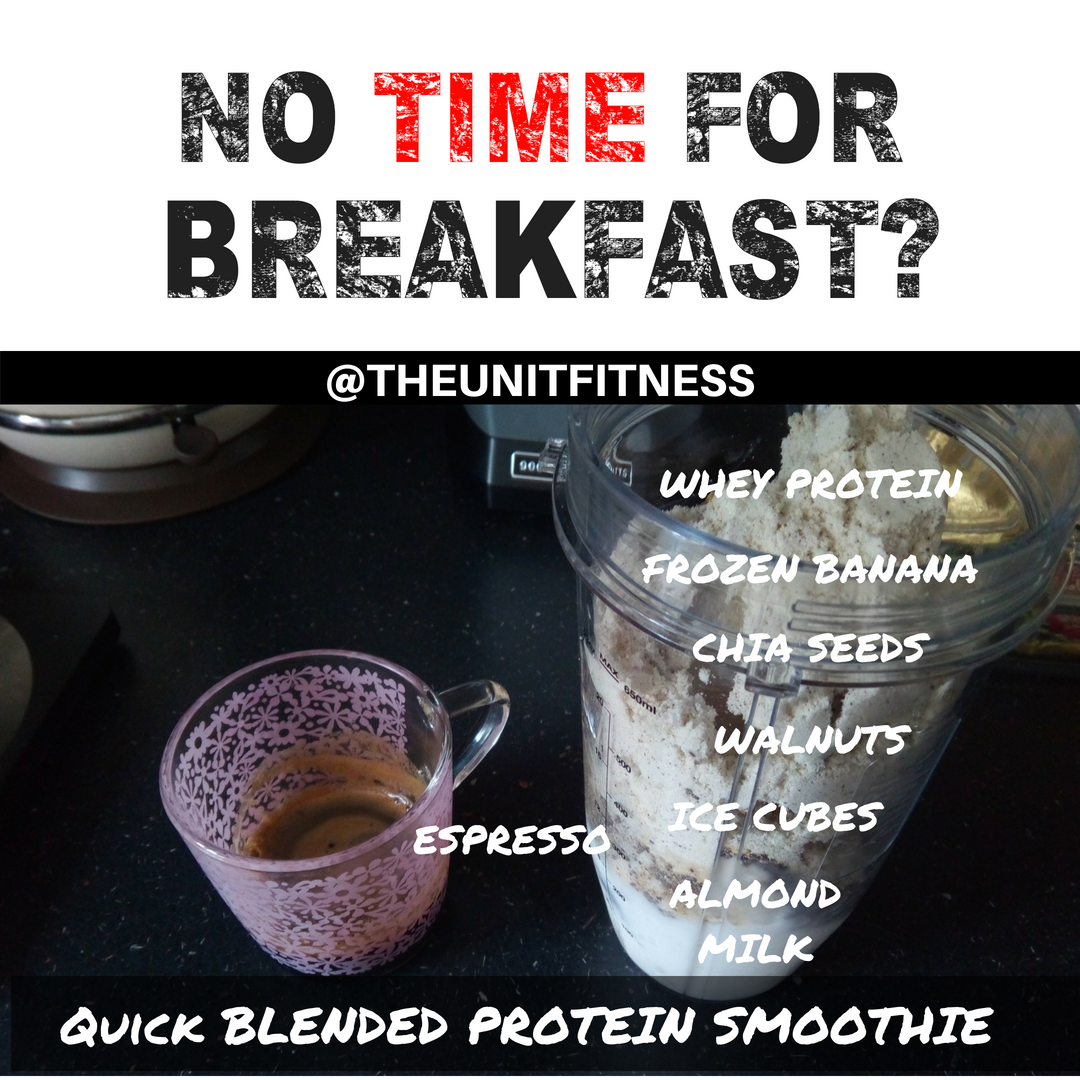7 Reasons To Try Intermittent Fasting
7 Reasons To Try Intermittent Fasting...
You may well have heard of the buzz word diet right now - I.F, short for Intermittent Fasting, which is far from new but for some reason is popular right now.
I’m going to aim to give you a brief overview of what it is and highlight some benefits of following an IF diet approach.
What is it and why could it work for you?
Well, simply put it’s going a long period of time without any caloric intake through food or drink.
We typically fast during our sleep so a popular IF approach is to extend this by delaying breakfast and following a 16/8 approach.
16 hours fasted and 8 hour eating window, which could be:
12pm eat your first meal and by 8pm finish your last calorie consumption for the day. Then repeat the next day essentially fasting whilst asleep from say 10pm to 6am, waking and drinking water or black/green tea or black coffee until 12pm first meal again.
Other popular approaches are whole day fasting once per week, and sometimes longer.
Here are 7 reasons why you might like to try IF but please be aware some people should NOT follow I.F for medical reasons.
Also, women might want to be aware of impact on hormone levels (here is a far more in depth blog by Dr John Beradi of Precision Nutrition to learn more >> https://www.precisionnutrition.com/intermittent-fasting-women )
1. You can enjoy more time in the mornings to wake up by not worrying about breakfast.
Without the stress of having to get yourself ready for work and prepare a healthy breakfast to enjoy you can just worry about looking good whilst brewing a nice strong coffee or just drinking water with fresh lemon squeezed in.
You can use the time to either make your breakfast and lunch to have later in the day if you haven’t already got ahead with prepping this the night before. You’ll feel less bloated trying to digest food not long after waking up and after an initial period of adjusting to hunger levels upon waking you’ll likely feel fine not eating straight away.
It is a habit we have ingrained to get up and eat breakfast not long after jumping out of bed and one that can be changed over time by working at it.
2. You’ll likely eat less (through less time to consume more meals) leading to potential weight loss and a better body composition. Here’s how:
If you have a daily target of 1800 calories which would mean you lost on average 1 pound per week (until a plateau occurred), but because you had no strict eating windows and fasting periods (like a 16/8 IF approach for example) you may well eat 1800 calories in just 3 meals, then add in extra snacks because you can, going well over your calorie target and potentially leading to weight gain if in excess often.
But if you were set on only eating between 12 and 8pm you may well find it hard to over eat past 1800 calories if food quality and nutrient dense rather than calorie dense foods were chosen.
3. A bigger meal later in the day can help keep you fuller for longer and minimise evening snacking (the worst time for most).
As above, a cut off eating time of say 8pm each evening can be the factor causing less before bed snacks to be eaten.
Look, some people work well eating late, some don’t, but if you’re someone who can easily snack on things right up to bed time you might be adding hundreds of unnecessary calories in right when you don’t really want them.
it might well be that you had a light dinner and felt hungry late in the evening, so by filling up at dinner you’ll likely be less inclined to want to snack later, meaning less calorie intake than usual.
4. Purposefully skipping breakfast with a plan will be more successful than missing it accidentally without one.
When you have a plan to skip (or really just delay) breakfast until say 12pm, you are again less likely to snack because you KNOW you’ll feel hungry and you have things in place to deal with that until 12pm. That could be sparkling water to help keep you feeling fuller without food, or nice strong black coffee to fuel your morning.
This versus missing brekkie without a plan means you’re hungry straight away and don’t have any thing in place to help you get through the morning until lunch.
This will usually end up in poor choice snacks being eaten and continuing this trend throughout the day in to the evening and perhaps for the next few days!
5. There are a whole host of physiological benefits such as reduced cholesterol and blood pressure, increased fat burning in the latter stages of fasting, improved appetite control, and better blood sugar control.
Through studies that have been done (there have been a lot on animals and some on humans) but also personal ‘experiments by ‘Professional Dieters’ like Dr. John Beradi who tried multiple IF approaches strictly and scientifically for months on end to compare and see what worked best for him, there have been numerous physiological benefits that occur when we fast.
The general consensus is that it is most effective past 20 hours and longer (we do fast whilst asleep so most of us get a degree of IF anyway, however the fact that we’re all not shredded and of superior health tells us that 8 to 12 hours without eating doesn’t suite outweigh the average diet.
But, start increasing that fasting time to 16 hours, 20 hours, 24 hours, 36 hours, 48 hours and 60 hours plus, and you begin to tap into some great potential physiological changes the body makes happen when faced with no food.
Simply consuming no refined sugar for a day when you usually do every few hours will have a positive effect on blood sugar levels and hormonal balance.
6. We get to practice going for longer periods of time without food which in turn develops mental strength and focus on a particular task (many people who fail diets do so because their mindset and will power isn’t dialled in to succeed).
I think we can all accept that as a generation we are a lot ‘softer’ right now. We like things quicker and easier than ever before, and this leads to a quitter mentality when things don’t necessarily happen quickly (in terms of weight loss) and a mindset that gives up all too easily.
Training the body is easy, everyone can find a Personal Trainer who can help ‘motivate’ them to exercise, but training the mind is all you buddy! You’ve gotta build a strong mind to succeed in anything in life and whilst many of us have one, we are very unfit in the mindset game.
Introducing Intermittent Fasting to your daily routine can be a great mental strength building exercise, it takes determination and focus to stick to something such as only eating between 12 and 8pm or even going 36 hours without food, especially when there are so many external factors trying to derail our efforts.
Like meditation, breathing exercises, prolonged cold exposure and feats of physical endurance, practicing fasting regularly will be like reps of 200kg back squats for the mind - you simply can’t not get stronger from that!
7. It can help you stay on track and maintain a calorie deficit whilst still enjoying social events or foods you love.
Probably the best reason to try an IF approach is that it can allow a flexible dieting approach because you have more control over the calories going in.
This means you could effectively ‘get away with’ eating that 1000 calorie plus restaurant meal plus a few beers or wines because all you do is then take a prolonged period of fasting once you hit your calorie requirements, or if you do go over your target, fast a bit longer - simple!
If you worked on a 7 day average of calories across the week you could then manipulate the days calories went in to suit the situations you faced.
Social situations often revolve around food and drink so these will always mean more calories consumed than we need for our weight loss or body recomp goals, therefore if we eat a regular days calories PLUS the extra at a social event we’ll be in a surplus.
Eat less the day or 2 before the event, overeat (and drink) at the event, then fast a bit longer after the event and on average you’re still on track.
It really can be that simple if you know the numbers.
So there we have just a handful of reasons why trying IF might be beneficial for you.
Make sure to do a bit more research before trying any dietary changes and consult a Medical Professional if you’re unsure. But generally, most of us can benefit from eating a little less and eating less frequently if weight loss and getting leaner is our goal.
Rob




